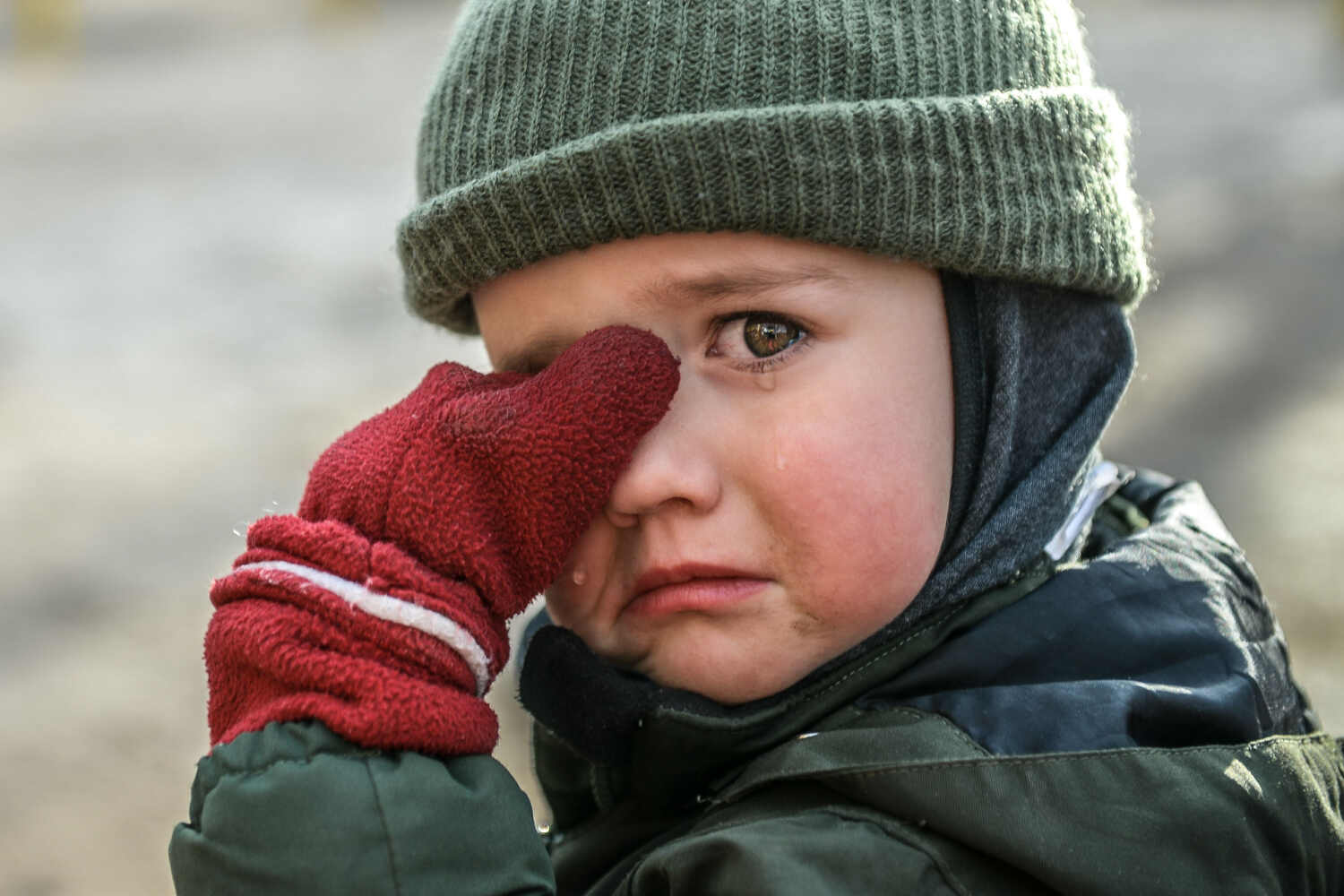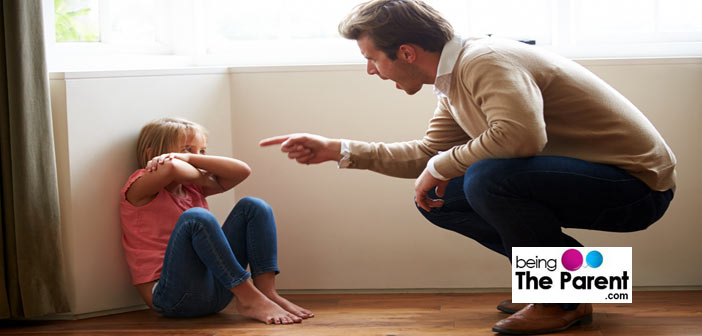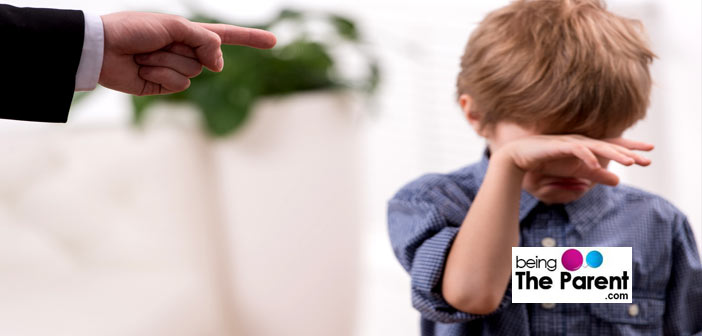
Let’s face it. We are all humans. It is but natural for us to be angry when our children misbehave, frequently and repeatedly. Most of us by now clearly understand the perils of spanking the child. So our knee-jerk reaction often is to shout at them. This definitely gets their attention. However, studies show that it does way too much harm than help.
In This Article
- Verbal Aggression – Emotional Abuse
- Is Verbal Punishment Same as Insulting Children?
- Can Insulting Kids be Considered as Child Abuse?
- How Parents Insult Their Children?
- What are the Consequences of Insulting Children?
- How do You Correct Your Child Without Hurting Them Emotionally?
Verbal Aggression – Emotional Abuse
Verbal aggression – especially if it involves shouting and insulting – can impact your child’s psychological and emotional development. When more and more research studies discourage or forbid parents from using punishments, you are left completely confused and clueless on how to discipline or even parent! Read on to understand the problems of insulting your children and ways of using positive parenting techniques.
Is Verbal Punishment Same as Insulting Children?
Being firm or assertive with your child is not insulting them. However, it is important to understand the boundaries. If your child is misbehaving, then it is completely ok to instruct them to stop and rectify his/her actions in a stern serious voice. However, yelling, calling them names, using extremely harsh tones and abusing them with words for their act can be classified under “insult”.
Can Insulting Kids be Considered as Child Abuse?
In one word, the answer is YES. Child abuse is not restricted to physical abuse. Any kind of harm and mistreatment that is done intentionally to a child is considered as child abuse. (Refer to Child Abuse – Listen to the Whispers for more on this topic.)
Insulting is classified under emotional abuse. By definition, emotional abuse refers to any act by an adult that results in injuring a child’s emotional health. When you yell at your child or throw insults at them, you are chipping away bits from their self-esteem.

How Parents Insult Their Children?
Insults can be of many forms. Some of them are:
Name Calling
“Are you stupid?” , “Why are you acting like a fool?” , “Don’t act retarded”
Shame
“You embarrass me…you are such a disappointment”
Comparisons
“I wish you were more like Child-B, he is so much smarter than you are”
Teasing in Public
“Oh he sucks at studies, he is bottom of his class”
Rejection
“Shut up and get out of my face”
Extreme or Negative Criticisms
“You are good for nothing. Why can’t you make me proud in even one thing”
Some of you might go through the above examples and tell yourself you would NEVER be such a parent. You should not be, true. However, please understand that these statements (and others) roll out quite easily from our mouth when anger takes over common sense.
What are the Consequences of Insulting Children?
Emotional abuse is termed as a Silent Epidemic. Most of us do not even realize we are abusing our child – there is no physical harm of evidence to show for the abuse. It is invisible, but yet as damaging as other forms of child abuse. It is breaking apart your child, his self-esteem and his psychological and emotional development. Key consequences of insulting your child are:
1. Lowered Self-Esteem
As mentioned earlier, every time you insult your child – on a one-on-one basis or worse in public – you are reducing his/her self-worth little by little. Playing good cop-bad cop also does not help. Studies show that even if only one parent is an insulter, the child’s self-image and self-esteem is impaired.
2. Disobedience
Most parents do not want to cause intentional harm to their kids. The insult, in most cases, is a momentary outburst rooted in parental stress and anger. You think that yelling or insulting them would discipline them when in fact it is quite counter-productive. It might make your child a rebel who would want to misbehave repeatedly as a show of protest.
3. More Aggressive or Depressive Behavior
Insulting can have long term repercussions. It can either make your child very aggressive as he/she grows up – as they grow up thinking it is OK to verbally abuse and insult someone – or they can go into a depression or become suicidal due to lack of self-worth.
4. Troubled Relationship with Parents
Respect is a two-way street. You insult them, be prepared to be not trusted by them as they grow. If this is hard to digest, imagine this. If someone calls you stupid or foolish, do you feel they called you names for your betterment and do you become more affectionate towards them? Or do you start hating them? You have your answer.

How do You Correct Your Child Without Hurting Them Emotionally?
So you can’t beat them, you can’t scold them harshly – what can you do to discipline them? The following five tips might help you:
1. Set the Right Expectations
They are kids! Most often we set very unrealistic expectations for them. A two year old cannot sit still. All 10 year olds cannot be school toppers. Every kid cannot be a child prodigy, or even have the same skills as you have. If you have realistic expectations from them, then you are not as easily frustrated and hence you would not easily lose your cool!
2. Respect Them
Respect should always be mutual – you want your child to respect you, then you need to respect your child back. Speak to them the same way you would speak to another adult who has behaved in a way you do not approve. Discuss the problem with your child one-on-one in gentle, respectful but firm manner.
3. Count to 10
Do not discipline your child when you are seething with rage. When you react when angry, you are more likely to shout or lose control of your words and say something you do not mean and would regret. Take a few minutes to calm down. Compose yourself and decide what you want to convey before you react.
4. Be Consistent
Be constant in the way you enforce your rules. A behavior once Okayed cannot be punished for later and vice versa.
5. Practice What You Preach
Walk the talk. Try to be the person you want your child to turn into and set examples of yourselves. Admit your mistakes when you commit them. Talk to them about how you have erred and how you plan to rectify it.
If, despite your better judgment you shout an insult at your child, do not hesitate to apologize. Explain to the child that your behavior was not right and you said those words without thinking. Commit not to repeat your behavior and at the same time tell your child, his/her behavior was not acceptable too.
Do not insult your kids so as to discipline them, insulting, shouting, screaming are the worst parenting mistakes, and generally tend to backfire.
Read Also: Discipline Without Spanking – It Is Not ‘Okay’ To Hit Your Child

